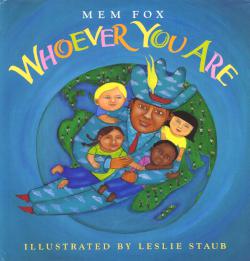Posts
Non-Verbal Reasoning - Tackling sequences questions - bonus video from PreQuest!
- Get link
- Other Apps
A book about kindness for young readers...
- Get link
- Other Apps

If you aren't familiar with the Australian children's writer Mem Fox, you are really missing out. Her stories centre on kindness, something that we could all do with more of in these fraught times. In my absolute favourite Wombat Divine, wombat is excluded from the nativity because he falls asleep, walks too slowly or can't keep up. In Whoever you Are, we also explore difference but with humans rather than animals. The book describes the ways in which people may look different but still experience the same pain. I strongly recommend it for anyone with children between 3 - 6. Thought provoking and lovely. A perfect starting off point for discussing inclusion with your family. If you don't want to read yourself, the link above also leads to an audio book!
UCAS Applications
- Get link
- Other Apps

Dreaming of Oxbridge? If you are applying to UK universities, you might want to consider the following: ORGANISATION 1: Oxbridge applications need to be in by October 15th 2: Check your course requirements; do you need to do extra exams e.g. the TSA? If so, your school will need to register you. If you can't get back to school, you can register with the British Council and take the various tests as an external candidate. UCAS 1: You can apply for up to five universities (including either Oxford or Cambridge) 2: You get one personal statement. In theory, you could apply for five different subjects but writing your statement is going to be a challenge! THE STATEMENT 1: You get 4000 characters to play with. 2: The statement needs to cover a few areas: why you have chosen your course, how you have developed your academic interests (including reading), how your school work or experience has contributed to your interest in your course. 3: You can add in a few lines about your non-acade
Charity Seminar - What on earth is Common entrance? What are scholarships?
- Get link
- Other Apps

Applying to British school application process can be a bit daunting. Why are scholarships known as Election at Winchester and King's Scholarships at Eton? Wycombe Abbey use the ISEB Common Entrance and Oundle have their own papers, are they the same? Is the 13+ the same as common entrance? To find the answer to these and other puzzles, join our seminar. Learn from our experience preparing students for UK schools since 2005 and help us to raise money for the needy elderly in Helping Hand care homes.
Online group interviews - don't panic!
- Get link
- Other Apps
Girls' schools tend to run group interview days for potential 11+ and 13+ candidates. The girls gather in groups and go through a series of activities together. Some schools, Wycombe Abbey, Downe House and CLC for example, also include online testing. For the most part, the assessment days are a chance for girls to get to know each other. The length of the day gives the chance to different opportunities to shine and a girl who thrives during the debate may be inspired by another who shows herself to be a leader in the sports activities. Our girls come back from their assessment days raving about Benenden's food or Downe House's muffin baking activities! This year though, all bets are off and all interviews are on Zoom! If your daughter has a Zoom group interview coming up, don't panic. Firstly, schools know that this is going to be a very different experience and will be kind and patient. A good interviewer will make sure everyone is included. Talk to your daughter
Do I stay or do I go? The dilemma of returning to overseas schools
- Get link
- Other Apps
'My daughter has a place at ___________ for September but we really can't decide whether to risk going. What should we do?' Sound familiar? There are no crystal balls here. Schools in the UK are doing everything they can to create safe spaces for the new term. These include one way systems, collecting students from the airport to avoid public transport, providing quarantine accommodation, creating emergency action plans. If you are worried, you could consider a few steps: 1: Does your child have specific health problems which might make him or her vulnerable to infection? 2: If your child psychologically prepared for departure? Talk to them about any concerns including what might happen to family, who they should approach if they are worried at school and how they can protect themselves. 3: Speak to your school. Ask them about; how students will be kept in groups, boarding arrangements (including bathrooms!), whether students will be wearing masks, what medical servic